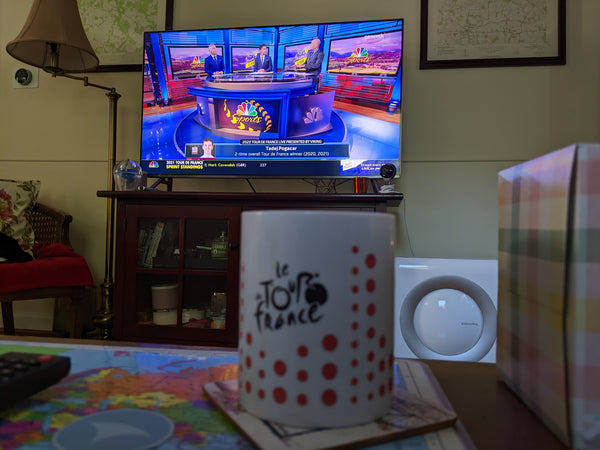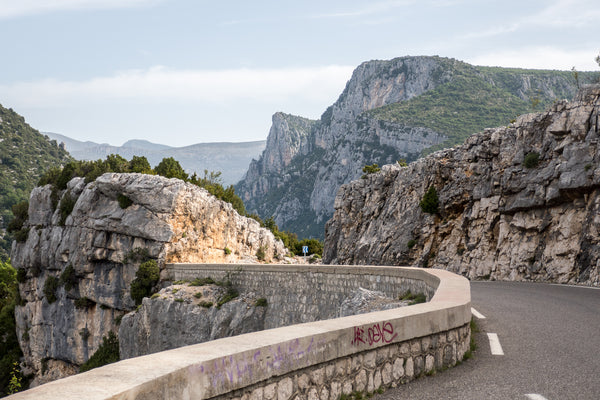Accessorize
I got back on my bike the following Wednesday, and put in a rather tame 2.2 miles. But I got back up. Rode again that Friday, and then the following Sunday. During this time, I was reading bike sites, trying to figure out what I needed to bring along every ride. I knew, from reading the Virginia cycling tips and laws that I would probably need a rear light, and it probably made sense to get a front light, and some sort of bag to carry tools and a tube in. I was also looking at cycling computers, and trying to figure out what to get. From being on Strava, I had seen that my friend had a [amazon_link id="B000BKJZ96" target="_blank" ]Garmin Edge 305[/amazon_link] . Other folks had the app like myself, and I saw the [amazon_link id="B000E3XPYQ" target="_blank" ]Forerunner 305(English & French)[/amazon_link] also. Since both of the 305s were end of productioned, the next choices were the [amazon_link id="B002O0QBN4" target="_blank" ]Garmin Edge 500 [/amazon_link], and the [amazon_link id="B0025VKW5K" target="_blank" ]Forerunner 310XT[/amazon_link]. Now, I could have just gone with a simple bike computer, like the [amazon_link id="B000P1RO7Q" target="_blank" ]Cateye Strada[/amazon_link], or the [amazon_link id="B003BCG9EK" target="_blank" ]Sigma Speedometer[/amazon_link], but I'm a tech guy, and I'm a GPS nerd. Back before Google bought them, there used to be a company called Keyhole. They published a piece of software that eventually became Google Earth. And it was a $40 a year subscription, and I got the most out of it. From looking for aliens in Area 51 , or looking at all the places I've lived or visited, or trying to use a cue sheet and map where the Tour de France was going to be, to mapping out geocache locations, GPS forever changed how I read maps. But then, I've always been an avid geography person as well. Until I had flunked out of college my first year, I was debating computer science or geography/cartograpy. Therefore, the device had to be a GPS centric device; I did not want to burn my iPhone battery on the Strava app getting GPS locations. In the end, it did end up being a choice between the Edge 500 and the Forerunner 310XT. I started doing my research, but what I ended up finding were discussions from the point of view of a triathelete. Cyclists hands down put forth the Edge, runners went for the 310XT. And when it comes down to it, there are 3 major things that separate the two. First, the 310XT is a watch. It fits around your wrist . The Edge 500 is meant to be mounted on the handlebars or stem of your bike. I wasn't sure if this would be an issue (and still don't), in that I do expect to join a health club to work on the rest of my body, and to be able to go do spinning classes and other cardio when the days get shorter and colder. I did learn though that Garmin makes a [amazon_link id="B0009PUJV6" target="_blank" ]quick release kit for the 310XT[/amazon_link] which allows the 310XT to have a mount on the bike, and then be mounted to a wristband as a watch again. However, it works both ways, in that the same built-in quick release for the Edge 500 would allow it to be worn as a watch. Second, the two devices support different ANT+ devices. For example, the Edge 500 can support third party power meters, while the 310XT cannot, but the 310XT supports the Garmin [amazon_link id="B00264GKVQ" target="_blank" ]Foot Pod[/amazon_link], but not a power meter. Seeing that the price of a power meter is more than the price of my bike, I don't think I'll be worrying about that one either. Lastly, the Edge 500 uses a barometric sensor to determine grade/height, while the 310XT relies upon GPS. Now, if you've only used GPS on a 2 dimensional field (i.e. in a car getting directions from one place to another), GPS is very precise. However, it is significantly less precise when you add that third dimension, and I had been seeing issues with that on the iPhone app. When it comes down to it, I really wanted something that could handle a heart-rate monitor, and provide me a proper grade information, so I went with the Edge 500, figuring I could put it in my pocket when I was working out inside, so that it kept information on my heart rate when I was exercising. To address the other things required for the normal riding of a bike, I went to my local Trek bike store, Spokes Etc. There I met Mike, and told him my story. He seemed to be genuinely appreciative and excited about my goals. He got me kitted out with a nice hazzard yellow jersey, a pair of baggy shorts, and while I was trying these on, he put together a bag and spares kit for me. I added a pump and a front and rear light, and I was set for safety. The only other thing I had left to pick up was a bike lock, but I figured since I wasn't commuting, all I would need is an adequate cable bike lock. I picked that up this past week. Owning a bike and using it responsibly and safely isn't cheap.Leave a comment
Comments will be approved before showing up.


